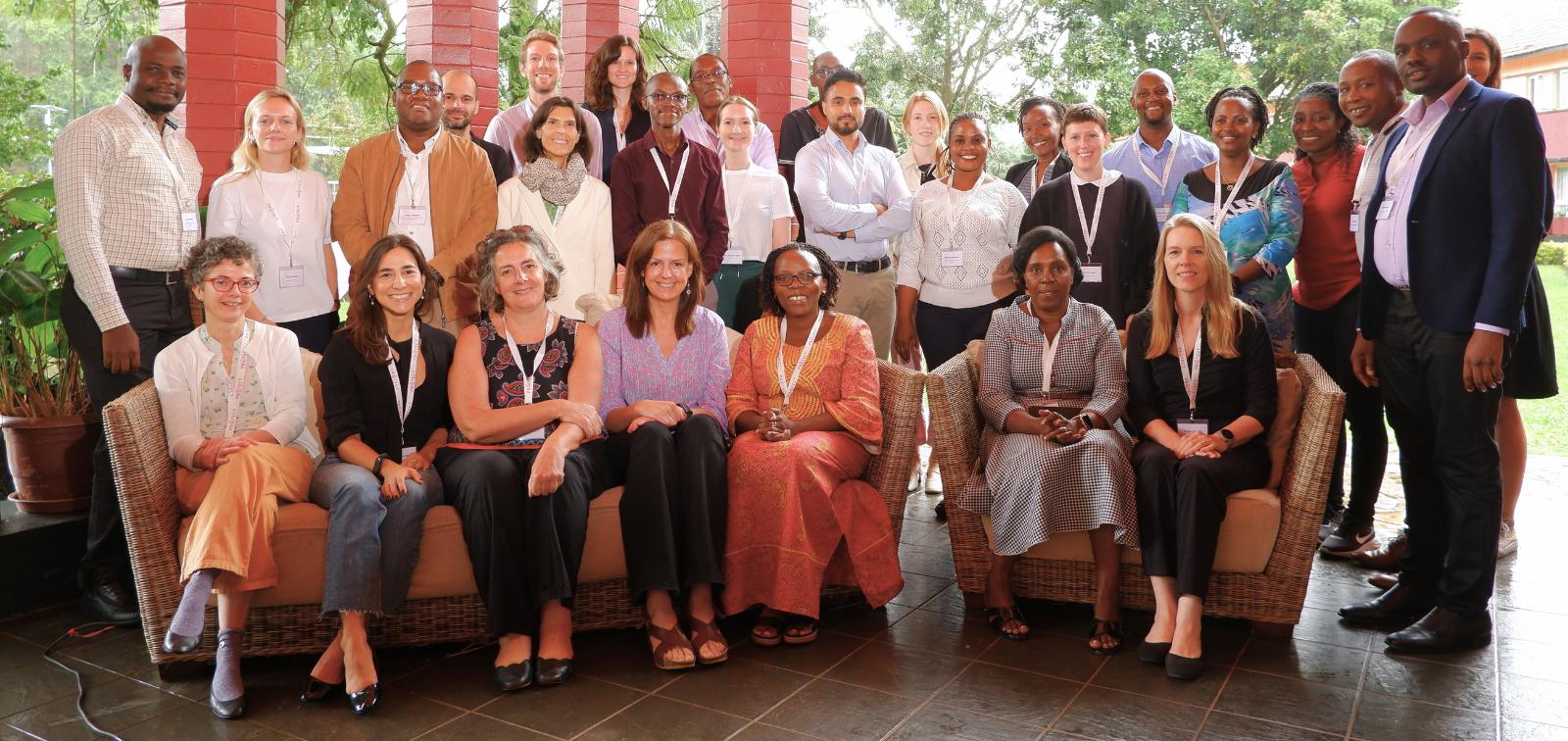PROTECT Paves the Way for Future Maternal Vaccination against Group B Streptococcus in Africa
The project aims to strengthen maternal vaccine testing capacity in Kenya, Malawi, Mozambique and Uganda
28.06.2024
After its first kick-off meeting in mid-June in Entebbe, Uganda, the PROTECT consortium has started its work to support the implementation of maternal vaccination against Group B Streptococcus (GBS) in Africa. The project, co-funded by the European Union (EDCTP3), is coordinated by the Barcelona Institute for Global Health (ISGlobal), a centre supported by the "la Caixa" Foundation, in collaboration with Makerere University - John Hopkins University Joint Collaboration (MUJHU), Uganda, and brings together up to ten African and European institutions.
In addition, "the project has received strong support from the World Health Organisation (WHO), main regulatory authorities and key international stakeholders, so it has the potential to significantly influence healthpolicy recommendations for GBS maternal vaccination strategies at a global level," stresses Azucena Bardají, coordinator of PROTECT and Associate Research Professor at ISGlobal - Maternal, Child and Reproductive Health Initiative.
A vaccine that could save thousands of lives
The initiative aims to develop pregnancy registries for maternal vaccines safety assessment, establish sentinel sites for GBS infection surveillance, and monitor vaccine confidence in Kenya, Malawi, Mozambique and Uganda, to support the next phases of the maternal GBS vaccine clinical trial and accelerate its development, evaluation and licensure.
Although GBS is normally a harmless bacterium that can form part of our microbiota, it can pose a risk during pregnancy and childbirth, as pregnant women colonised with GBS can spread the bacteria to their infants before or during childbirth and cause serious infection. Today, it remains a major cause of death, disease and disability in newborns and infants, particularly in low- and middle-income countries, as can cause sepsis and meningitis.
The GBS maternal vaccines, currently in development, could save thousands of lives each year by preventing mother-to-child transmission of GBS infection. However, according to the WHO Full Value of Vaccines Assessment (FVVA) for GBS vaccines, there are a number of challenges that need to be addressed before the next phases of the vaccine clinical trial can proceed: the lack of background data on burden of disease and birth outcomes in Africa. It also advocates for capacity building for the maternal GBS vaccine trials at sites across Africa.
PROTECT's decisive role
This is where PROTECT can play a crucial role. It will define the burden of infant GBS in representative populations in sub-Saharan Africa. The consortium will also develop robust pregnancy episode registries with detailed information on pregnancy and infant outcomes to monitor the safety and effectiveness of GBS vaccines.
"Recruiting mothers in vaccine trials is always a challenge. We will work to overcome this through community engagement and education," adds Bardají. "In addition, we will set up a multi-country tracking system to monitor the level of vaccine confidence and develop toolkits to improve knowledge about vaccines and ensure equitable participation in vaccine trials."
As a result of the project, an African network of sites capable of conducting pre- and post-licensure studies of maternal vaccines will be established, providing the necessary baseline data of GBS burden for policy makers to consider the introduction of GBS vaccines in sub-Saharan Africa. In addition, the strengthening of capacities could contribute to the surveillance of other diseases and evaluation of other new vaccines, thereby improving overall health outcomes in the region.



